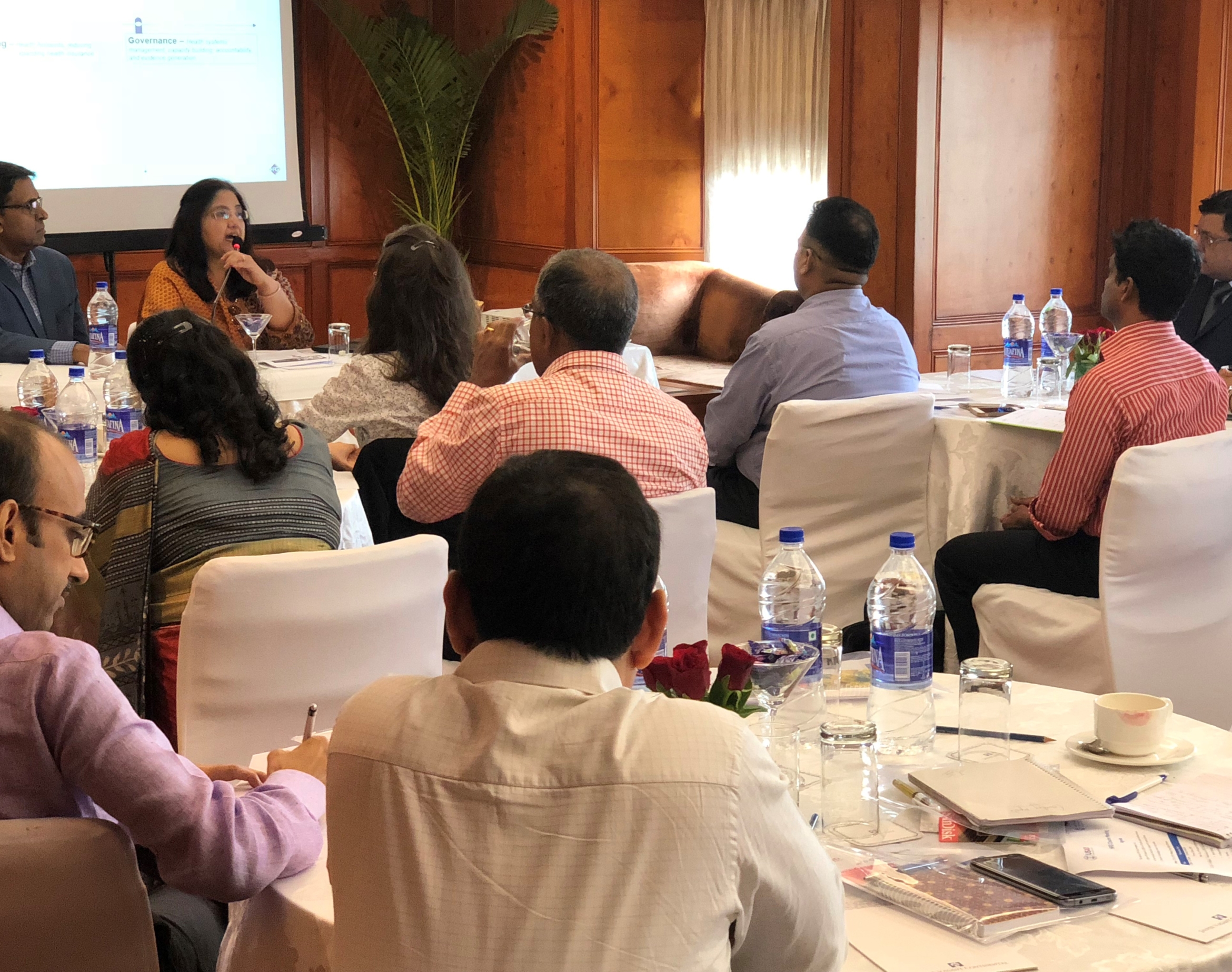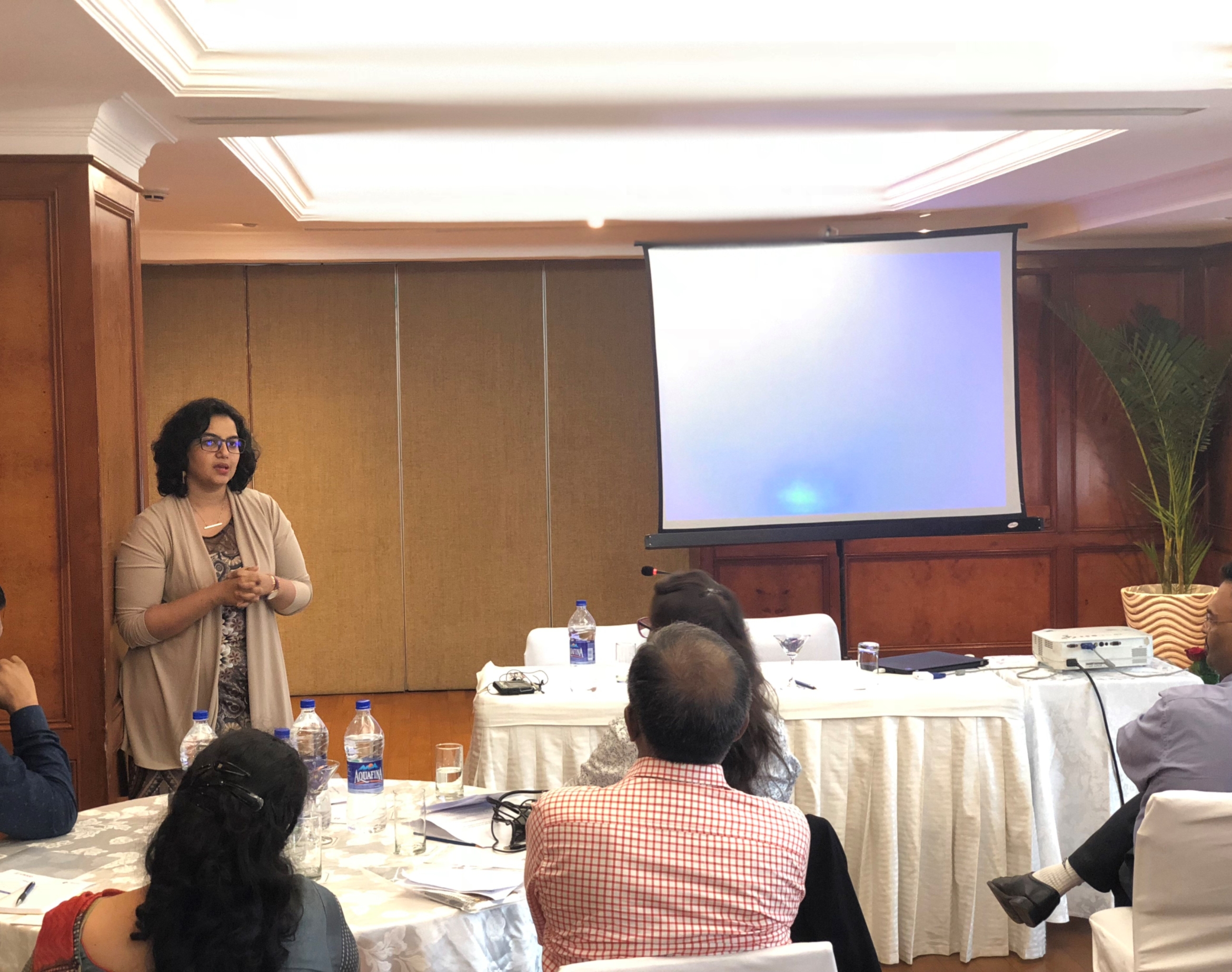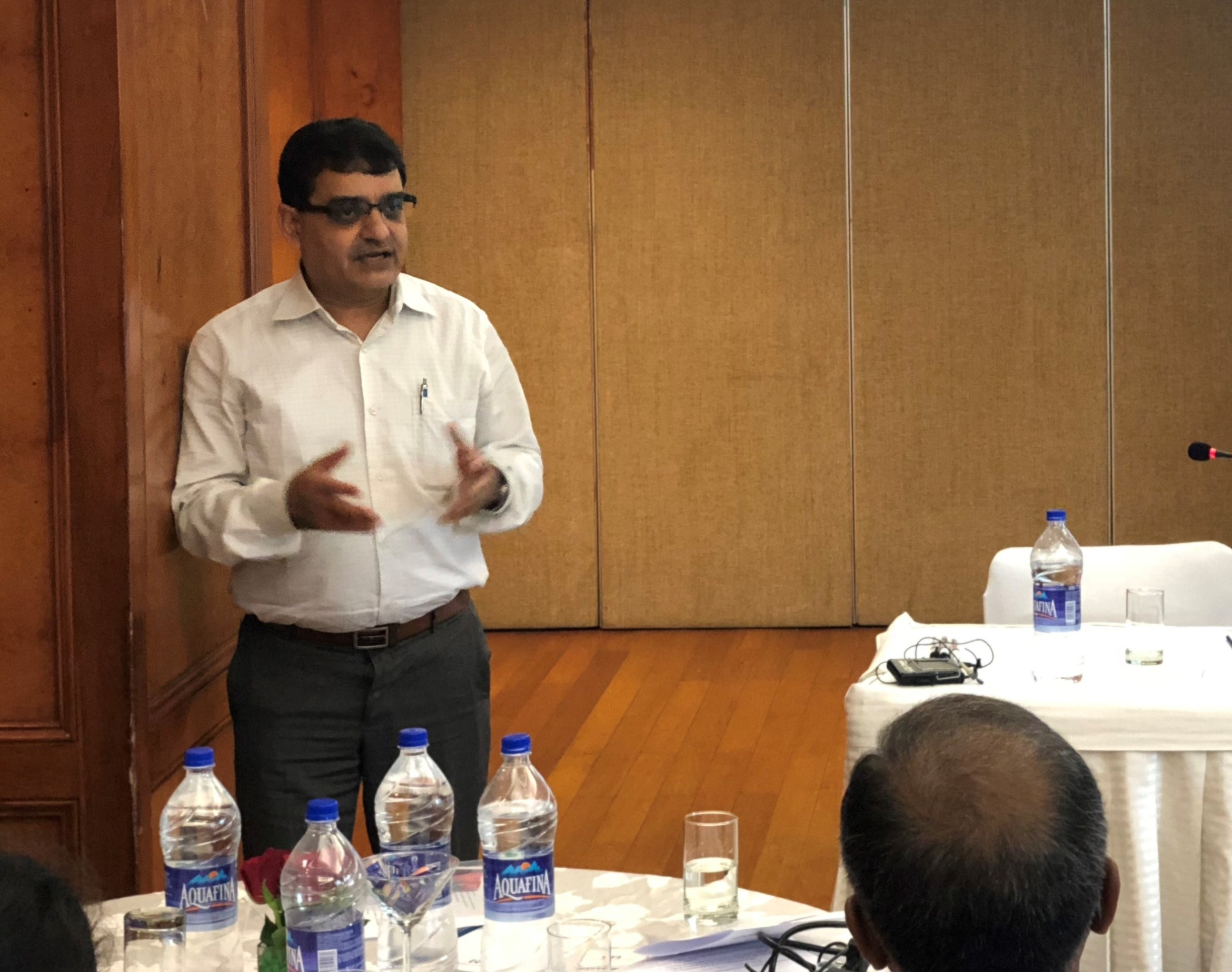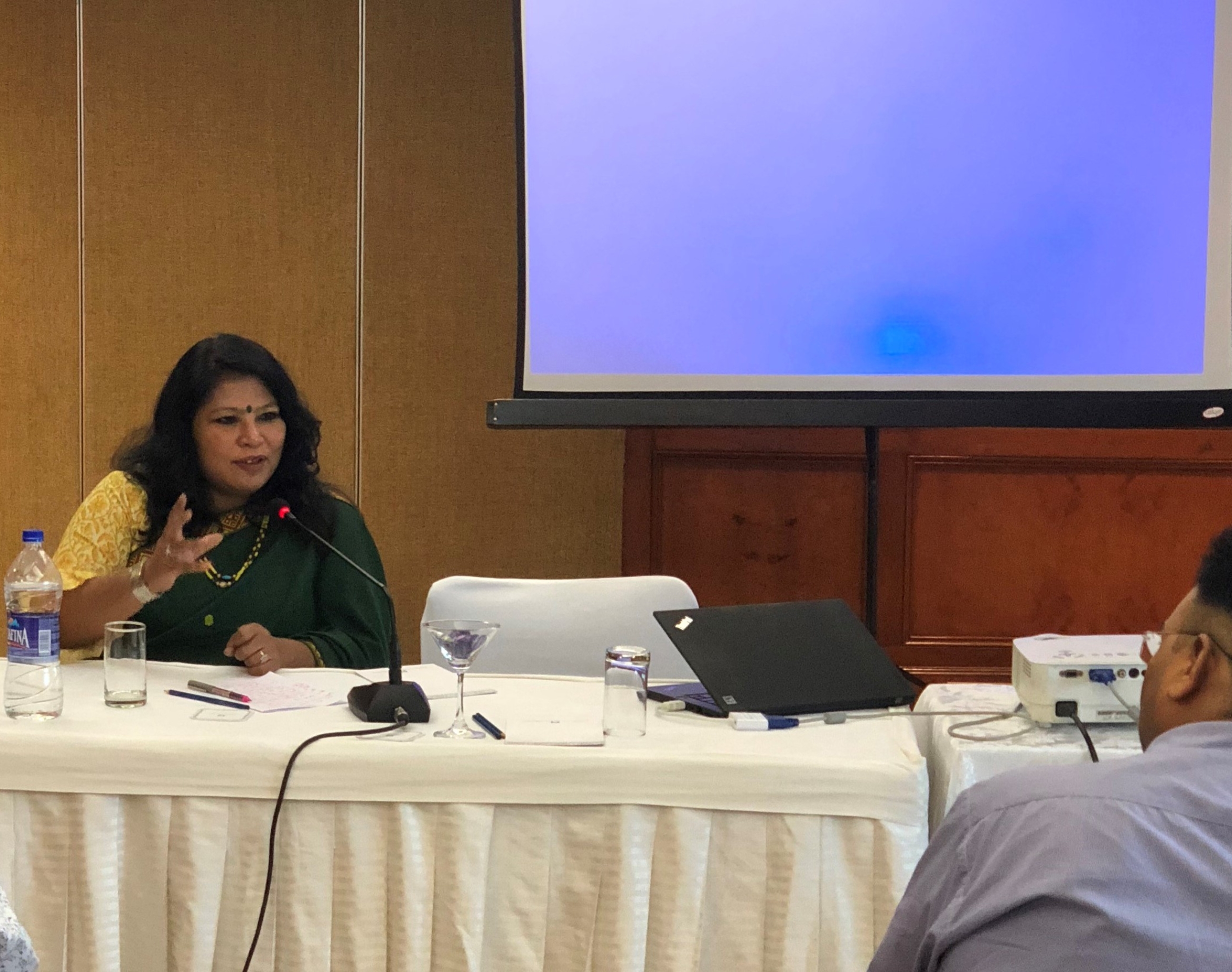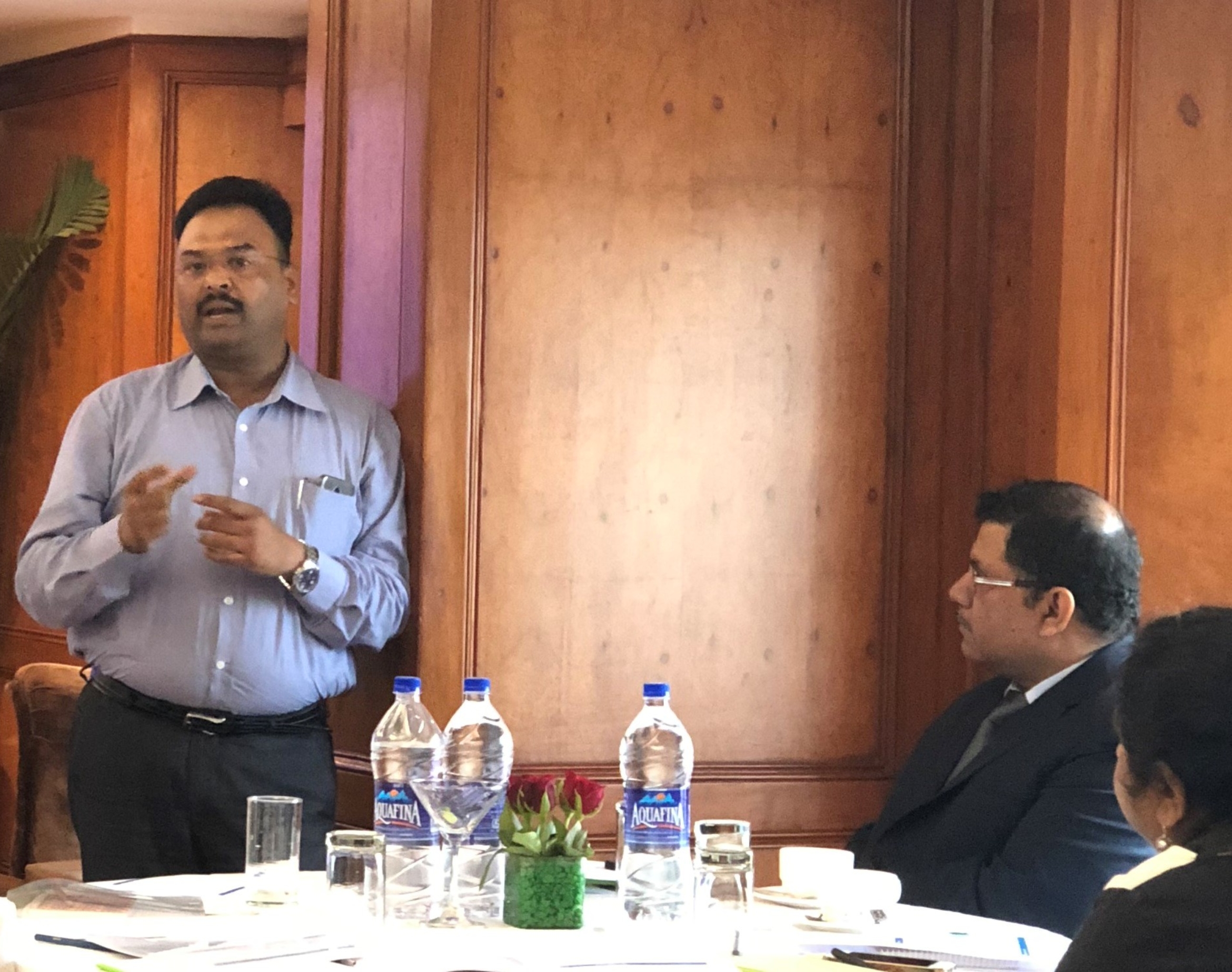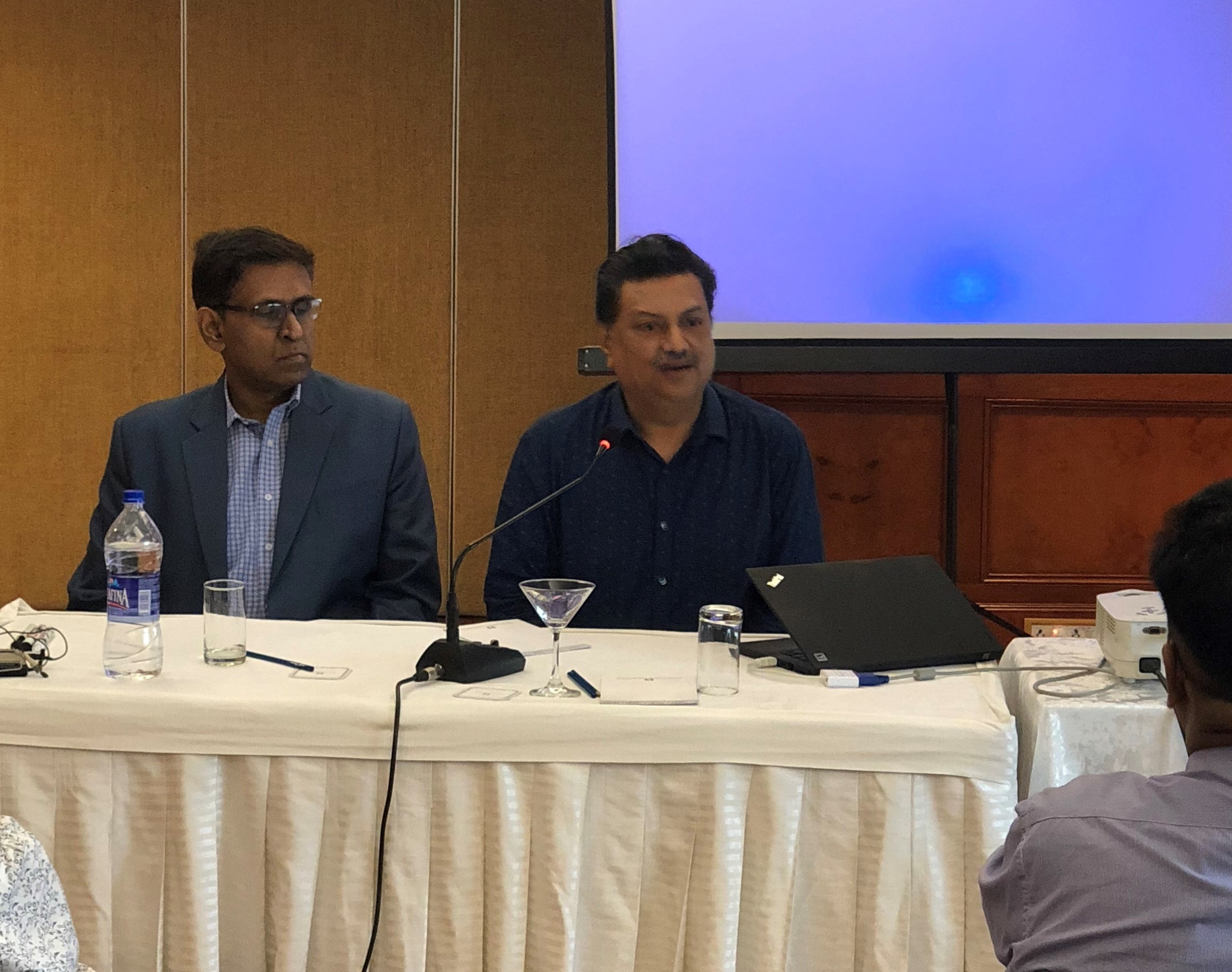HFG India End of Project: Celebrating the Project’s Legacy, Looking to the Future
Categories: Announcements
HFG India held its end-of-project meeting on July 25, 2018, at New Delhi. The meeting was attended by senior representatives from USAID, implementation agencies that will take forward key HFG project activities, project partner Avenir Health, and HFG/Abt Associates global and India leadership. These different stakeholders discussed the progress that HFG made and opportunities to further strengthen government systems to ensure improved availability of quality, affordable health care for India’s poor and marginalized.
Since 2012, the HFG project in India has successfully delivered on a wide range of health system strengthening activities aimed at improving health financing mechanisms, research-driven policy formulation and implementation, and organizational capacity building. The end-of-project meeting provided a forum to discuss the project’s major activities, its achievements and lessons, and, importantly, how the ongoing project work would successfully transition to other USAID-supported projects to leverage and build on HFG’s rich legacy. As Gautam Chakraborty, Development Assistance Specialist (Health Finance) at USAID/India, put it:
“This is the end of one journey and the beginning of another… HFG has contributed a lot to strengthening systems and created a wealth of knowledge that our other partners will now take forward.”
Gautam Chakraborty, Development Assistance Specialist (Health Finance) at USAID/India
Reflecting on HFG’s work and accomplishments
The end-of-project meeting began with a presentation on HFG India’s work and achievements in its two major work streams: health financing and health governance. Delivered jointly by Dr. Lysander Menezes, Chief of Party, HFG India, and Dr. Rashmi Kukreja, Deputy Chief of Party, HFG India, the presentation summarized the project’s multi-activity, multi-domain journey over its six years of implementation. It noted the work HFG has successfully executed in such diverse areas as family planning, tuberculosis (TB), adolescent health, and HIV on the one hand and health financing, health insurance, health data quality, institutional capacity building, and civil society strengthening on the other.
Looking ahead to the future
Besides sharing the gains and lessons from HFG’s work, the end-of-project meeting was an opportunity for interaction among USAID’s partner agencies to which the ongoing HFG activities will transition. Sustainability has been central to HFG’s initiatives in India as well as in the 40-plus other countries where the project has been implemented. Dr. Peter Vaz, attending the meeting as HFG India’s Country Manager and as Principal Associate, International Development, at Abt Associates, the implementation agency for HFG globally, underscored this guiding principle:
“A key focus of all our efforts—as we worked to address some of the biggest health system challenges—has been on institutional strengthening and ensuring smooth transition and sustainability of our work.”
Meeting attendees also heard from HFG transition partners on how they will integrate HFG’s work into their projects moving forward. Senior representatives from USAID projects, including Learning for Impact (L4i), Vriddhi, MCSP, and RASTA, as well as the White Ribbon Alliance India (WRAI) presented their plans for the transition and the future. They acknowledged HFG’s rich legacy and how crucial continuing and strengthening its achievements will be to bolster India’s public health system’s goal of providing quality, accessible, affordable, and accountable health care to all.
The HFG end-of-project meeting concluded with a note of thanks by Dr. Sanjeev Gaikwad, Country Representative for Abt Associates in India, and Dr. Menezes. Dr. Gaikwad thanked the USAID Mission for “placing their faith in Abt/HFG and allowing us to be part of India’s health sector reform journey.” He added:
“Throughout its 15–16 years in India, Abt has been known for its work in engaging the private health sector, but HFG provided it an opportunity to showcase its capability on the public health side, both in health governance and financing.”
He commended the project staff for their focus and hard work as they tackled a wide spectrum of health domain themes. In his closing remarks, Dr. Menezes shared the
“bittersweet experience of the project coming to an end, but the sense of exhilaration at the vast body of work the project has successfully undertaken and how it would continue through in-country partners to strengthen the country’s public health system and, ultimately, benefit the people.”





